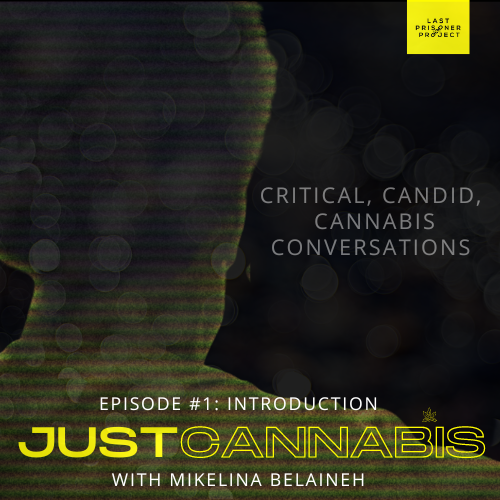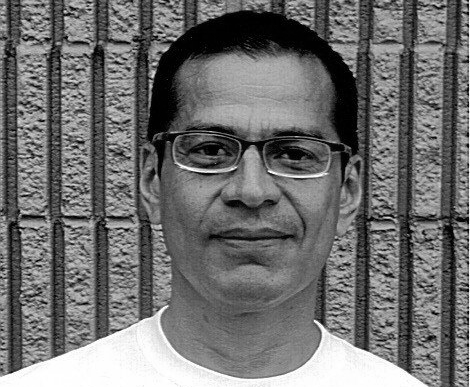Just Cannabis – Episode 1: Intersectionality and the War on Cannabis
Welcome to Just Cannabis, a new short-form podcast series from the Last Prisoner Project that examines the issue of cannabis justice through a series of interviews with directly impacted individuals and cannabis justice advocates. Just Cannabis hopes to support the efficacy of the cannabis justice movement by offering a new platform for critical and candid conversations about cannabis justice issues.
Today, in 2023,
88% of Americans support cannabis legalization. Almost every state has legalized or decriminalized cannabis in some form or fashion, an incredible and dramatic shift in mainstream culture and opinion. As the mainstream cannabis movement continues to gain momentum across the nation, the cannabis industry and government stakeholders are projecting revenues and profits while individuals, families, and communities continue to suffer from arrest, incarceration, and the collateral consequences that follow.
The “War on Drugs” and the “War on Cannabis” that flows from it is complex, systematic, and firmly rooted in a foundation fertilized by 50+ years of propaganda and enforcement. If we hope to descale this War and transform our culture of racialized punishment, we must dismantle the systems that stand in its honor, divest from narratives of black criminality, and we must be dogged in our critical examination of the task at hand.
In Season One of
Just Cannabis we focus on highlighting the voices and narratives of womxyn who have been impacted by the criminalization of cannabis because, despite being the fastest-growing correctional population in the country, womxyn are consistently overlooked by both the criminal justice and cannabis reform movement. The ACLU put out a hugely influential and important report in 2020 detailing and explaining the racial disparities in cannabis arrests— making clear that cannabis is a racial justice issue, but it fails to mention womxyn even once.
Meanwhile, women's incarceration rates climb at double the rate of men’s in state prisons across the country, and correctional facilities all over the country are struggling to house the ever-increasing number of womxyn, making overcrowding and inhumane conditions the new norm. We cannot fulfill our goals of equity and justice without understanding the experiences of directly impacted womxyn.
A recent report by the Prison Policy Initiative shows that over half (58%) of all women in U.S. prisons are mothers, as are 80% of women in jails. Additionally, the report found that 1/3 of incarcerated womxyn incarceration identify as queer. These data points demonstrate how the issue of criminal justice, and thus cannabis justice, is an intersectional issue that requires us to consider not only the implications of race, but also gender and sexuality (see more detailed discussion in the Blog Post “Towards an Intersectional Lens on Cannabis Criminal Justice Reform”).
The experience of arrest, incarceration, and re-entry is different for womxyn than it is for men. To overlook and exclude womxyn, is to turn away from lived experiences that are integral to understanding the whole cannabis justice story.
Listening to
Just Cannabis, you will hear from mothers and daughters who have been impacted by the criminalization of cannabis, as well as from advocates including
LPP’s Executive Director,
Sarah Gersten. By sharing their stories,
Just Cannabis is helping to expose an injustice that all too often goes unacknowledged and unaddressed. In addition, by giving listeners more insight into critical context missing from many of today’s cannabis-related conversations,
Just Cannabis
is giving the public an opportunity to learn, heal and empower themselves to advocate for much-needed change.
Our hope is that this podcast will spur the conversations and considerations needed for our country to take a more human-centric, anti-racist, and equitable approach to cannabis policy and its related criminal justice reforms. We hope this series inspires you to mobilize and organize around cannabis legalization, and we hope that it expands your understanding of today’s cannabis movement. To create a future different from our past and present, we must move with eyes and ears wide open– curious, critical, and questioning.
Thank you for reading, we hope you listen in, and welcome to
Just Cannabis.
Listen to Episode 1 on Spotify, Apple, or Amazon.
About the Author
Mikelina Belaineh serves as the Director of Impact at the Last Prisoner Project, and is the host/creator of
Just Cannabis. Mikelina identifies as a queer, black, nonbinary abolitionist, and has dedicated themselves to organizing around issues of gender, sexuality, policing, and punishment. Mikelina graduated from Harvard Law in 2016, and has since spent their career interrogating, understanding, and addressing issues of mass incarceration. Mikelina has worked on issues of street and gang violence, womxyn’s incarceration, and cannabis justice. They bring experience as a non-profit leader, board member, researcher, scholar, and professor.







